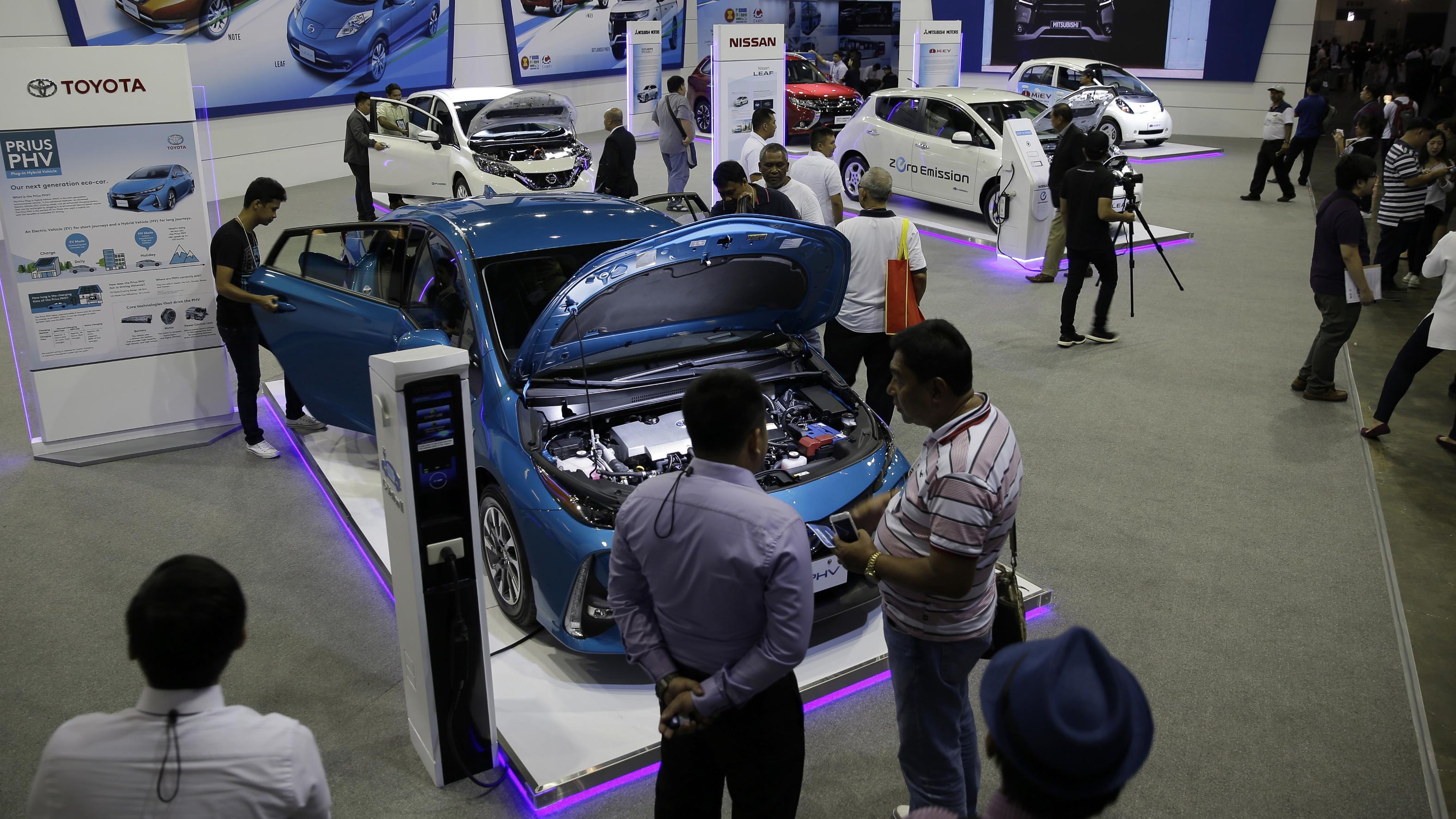 In this file photo dated June 29, 2017, visitors look at electric and hybrid cars during the first ASEAN electric vehicle and hybrid summit in Manila, Philippines. (PHOTO / AP)
In this file photo dated June 29, 2017, visitors look at electric and hybrid cars during the first ASEAN electric vehicle and hybrid summit in Manila, Philippines. (PHOTO / AP)
The Philippines’ electric vehicle industry is seeking more Chinese investments, with industry executives noting that Chinese automakers have the technology and financing that can help boost the local EV and battery manufacturing sector.
“Chinese investments are critical for the development of the EV industry in the Philippines.” Rommel Juan, chairman of the Electric Vehicle Association of the Philippines (EVAP), told China Daily.
Shenzhen-based BYD, the world’s top EV manufacturer, has set up a factory in Thailand. In the second half of this year, the EV maker will start production with a focus on the Thai market for sales
He said that as one of the world’s biggest EV markets, China is a global trendsetter for EV. The EVAP, which was set up in 2009, includes Chinese car companies’ branches in the Philippines as members, and “they’re really the ones who are making the (local EV) industry grow”.
READ MORE: January blues driven away as EV sales go up
Juan added that the EVAP had also linked up with local battery manufacturers and nickel miners to boost the country’s battery manufacturing industry. The Philippines is one of the world’s biggest producers of nickel, a key material for making batteries. “Since we have the raw materials, (battery manufacturing is) an investment that the Chinese companies can look into,” he said.
But while some of China’s biggest EV makers such as Dongfeng Motor and Chery Group have branched out in the Philippines, these companies are only focused on distributorship, according to Jose Bienvenido Biona, associate professor and director of the Center for Engineering and Sustainable Development Research at the Manila-based De La Salle University.
The move toward decarbonization has spurred the growth of the global EV industry. The Philippine government has laid out a road map in 2023 that aims to increase EV adoption in the domestic market and encourage more investments in EV manufacturing.
But while the Philippines has been producing and assembling electric tricycles for more than a decade, most locally manufactured four-wheeled vehicles are electric jeepneys as they are used for public transport. There are fewer than 9,000 EVs out of the nearly 13 million cars registered in the Philippines in 2021, according to latest data.
“The ease of doing business in the Philippines is a lot harder,” Ferdinand Raquelsantos, the EVAP’s honorary chairman, told China Daily.
READ MORE: BYD may overtake Tesla in global pure EV race
EVAP President Edmund Araga said while the Philippines has a lot of skilled workers to offer potential investors in EV manufacturing, it cannot compete with other Southeast Asian countries when it comes to lower material costs, logistics and available infrastructure.
Compared with its peers in Southeast Asia, the Philippines has fallen behind Thailand and Indonesia in attracting investors in EV manufacturing. For example, the Shenzhen-based BYD, the world’s top EV manufacturer, has set up a factory in Thailand. In the second half of this year, the EV maker will start production with a focus on the Thai market for sales, according to Liu Xueliang, general manager of BYD Asia-Pacific Auto Sales Division.
BYD also plans to invest $1.3 billion to build a manufacturing plant in Indonesia, Airlangga Hartarto, Indonesia’s Coordinating Minister for Economic Affairs, told local media in January.
Jiang Xueqing in Tokyo contributed to this story.
Contact the writer at prime@chinadailyapac.com


